Just before moving from Washington, D.C. to Nairobi, Kenya for my second Kiva Zip fellowship, I asked some friends from home if they would lend to some of the borrowers I had on-boarded.
I showed them Paolla, who needs $5000 to start a beauty supply business, and Sara, who needs the same amount to expand her ESL classes for refugees and immigrants. They are perfect Kiva borrowers, I explained, but their loans were fundraising slowly.
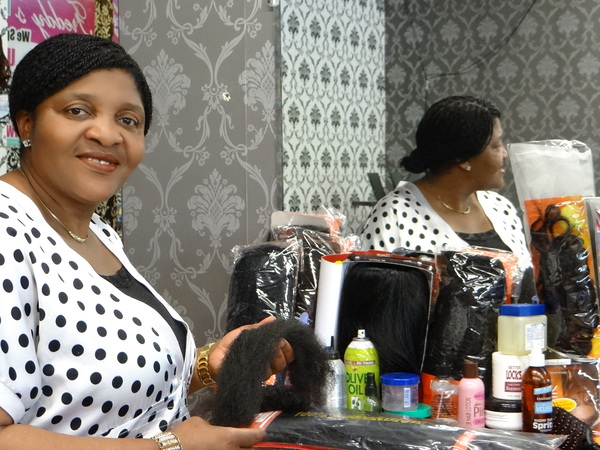
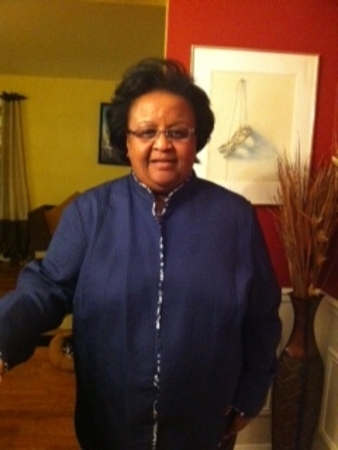
Left to right: Kiva Zip Entrepreneurs Paolla and Sara
To my surprise, none of them seemed interested.
"I don't know how I feel about lending to someone in the U.S.," one said. "Let me know when you have Kenyan borrowers. They need it more there."
I was shocked, even offended. How could this group of well-educated social activists whom I respect think American borrowers didn't deserve their support?
And yet, six months earlier, I too doubted the necessity of lending in the developed world.
I am unique as a Kiva fellow who has served in both the U.S. and Kenya, but in the beginning when I found out I was to be placed in DC and not abroad, I was disappointed. Like thousands of others who apply for Kiva fellowships, I wanted to make a "global impact." I was supposed to be "out there," in places like Kibera, Africa's largest slum, where hardship is rampant--not at home in the land of opportunity. Like my friends, I didn't think my neighbors needed me to volunteer my time and resources to get them interest-free loans.
But then I met Roberto, my first borrower, a middle-aged Nicaraguan man living in northern Virginia since 2003. Roberto was soft spoken, with limited English and a warm smile. He worked as a nighttime janitor at a local college and a landscaper on the weekends.
Yet Roberto had a remarkable past. Back home, he was a professor at a top Nicaraguan university. He held two post-graduate degrees in plant science and served as an environmental consultant for UNESCO.
Upon arrival in the U.S., though, he was demoted to cleaning classrooms on the graveyard shift.
Roberto came to America to build a life for himself and his loved ones, not to sweep floors. So he hoped a $4,000 Kiva Zip loan could help him expand his gardening company and finally return to his love of plants full-time.
In three hours of working together at his trustee's office, we wrote the loan application and it was soon posted online. Within a month, Roberto had the capital he needed to quit his janitor job and take on contracts with clients as prestigious as international embassies. Not only was he able to boost his own career, he also hired five new employees to widen the reach of Ladybug Landscape, Inc.
Roberto showed me that even in our affluent communities there are people whose lives could be transformed by just a few thousand dollars. Indeed, with nearly 80% of small businesses in the U.S. running off of credit cards, many American entrepreneurs--immigrants, native-born, whoever--might fail without alternative funding. These people may not live in extreme poverty, but they still struggle daily to keep afloat, deferring their dreams to pay down debt and feed their families.
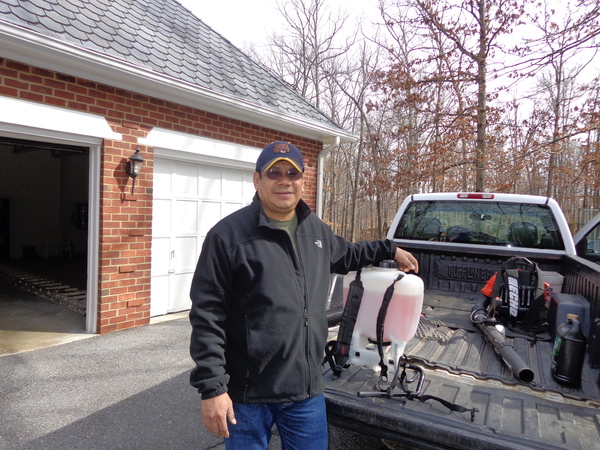
Kiva Zip Entrepreneur Roberto
Such folks deserve Kiva Zip loans as much as anyone.
A single mom in Kibera might fit our perception of "neediness" more than a gardener in Virginia, but I've worked with both and the similarities outweigh the differences. Kiva has never been about helping the poor in the charity sense. It is a platform that encourages connections and empowerment of extraordinary people who can help themselves. We lend to give them the tools to do so.
A borrower like Charles who wants to build a shuttle service in Washington, D.C. is no less worthy of a leg up than Mary who operates public minibuses in Nairobi.
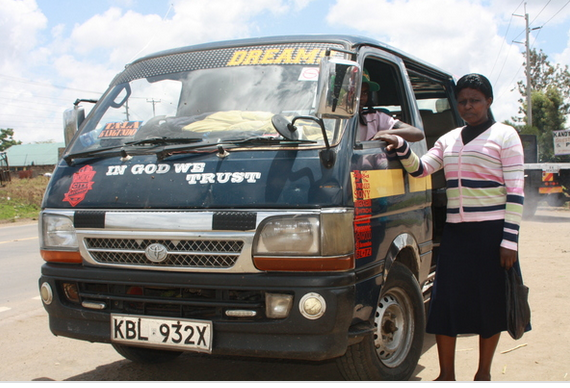
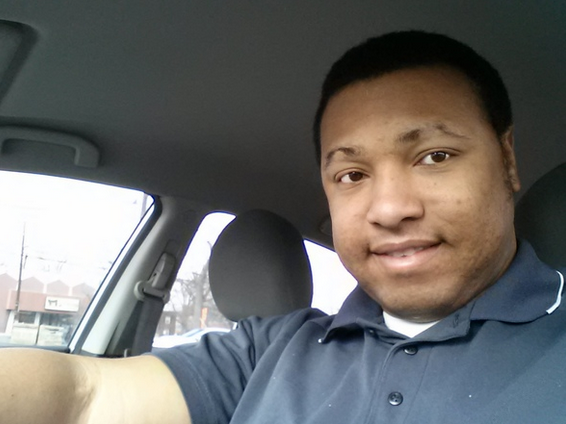
Left to right: Kiva Zip Entrepreneurs Mary and Charles
After four months and 18 Kiva ZIp borrowers in D.C., I'm happy to finally be "out there" in Kenya. But my experience in stateside micro-lending has proven to me that even in the land of opportunity, small business owners can use a helping hand.
Post by Taylor Whitfield, Kenya Kiva Zip Fellow
Our 2024 Coverage Needs You
It's Another Trump-Biden Showdown — And We Need Your Help
The Future Of Democracy Is At Stake
Our 2024 Coverage Needs You
Your Loyalty Means The World To Us
As Americans head to the polls in 2024, the very future of our country is at stake. At HuffPost, we believe that a free press is critical to creating well-informed voters. That's why our journalism is free for everyone, even though other newsrooms retreat behind expensive paywalls.
Our journalists will continue to cover the twists and turns during this historic presidential election. With your help, we'll bring you hard-hitting investigations, well-researched analysis and timely takes you can't find elsewhere. Reporting in this current political climate is a responsibility we do not take lightly, and we thank you for your support.
Contribute as little as $2 to keep our news free for all.
Can't afford to donate? Support HuffPost by creating a free account and log in while you read.
The 2024 election is heating up, and women's rights, health care, voting rights, and the very future of democracy are all at stake. Donald Trump will face Joe Biden in the most consequential vote of our time. And HuffPost will be there, covering every twist and turn. America's future hangs in the balance. Would you consider contributing to support our journalism and keep it free for all during this critical season?
HuffPost believes news should be accessible to everyone, regardless of their ability to pay for it. We rely on readers like you to help fund our work. Any contribution you can make — even as little as $2 — goes directly toward supporting the impactful journalism that we will continue to produce this year. Thank you for being part of our story.
Can't afford to donate? Support HuffPost by creating a free account and log in while you read.
It's official: Donald Trump will face Joe Biden this fall in the presidential election. As we face the most consequential presidential election of our time, HuffPost is committed to bringing you up-to-date, accurate news about the 2024 race. While other outlets have retreated behind paywalls, you can trust our news will stay free.
But we can't do it without your help. Reader funding is one of the key ways we support our newsroom. Would you consider making a donation to help fund our news during this critical time? Your contributions are vital to supporting a free press.
Contribute as little as $2 to keep our journalism free and accessible to all.
Can't afford to donate? Support HuffPost by creating a free account and log in while you read.
As Americans head to the polls in 2024, the very future of our country is at stake. At HuffPost, we believe that a free press is critical to creating well-informed voters. That's why our journalism is free for everyone, even though other newsrooms retreat behind expensive paywalls.
Our journalists will continue to cover the twists and turns during this historic presidential election. With your help, we'll bring you hard-hitting investigations, well-researched analysis and timely takes you can't find elsewhere. Reporting in this current political climate is a responsibility we do not take lightly, and we thank you for your support.
Contribute as little as $2 to keep our news free for all.
Can't afford to donate? Support HuffPost by creating a free account and log in while you read.
Dear HuffPost Reader
Thank you for your past contribution to HuffPost. We are sincerely grateful for readers like you who help us ensure that we can keep our journalism free for everyone.
The stakes are high this year, and our 2024 coverage could use continued support. Would you consider becoming a regular HuffPost contributor?
Dear HuffPost Reader
Thank you for your past contribution to HuffPost. We are sincerely grateful for readers like you who help us ensure that we can keep our journalism free for everyone.
The stakes are high this year, and our 2024 coverage could use continued support. If circumstances have changed since you last contributed, we hope you'll consider contributing to HuffPost once more.
Already contributed? Log in to hide these messages.




